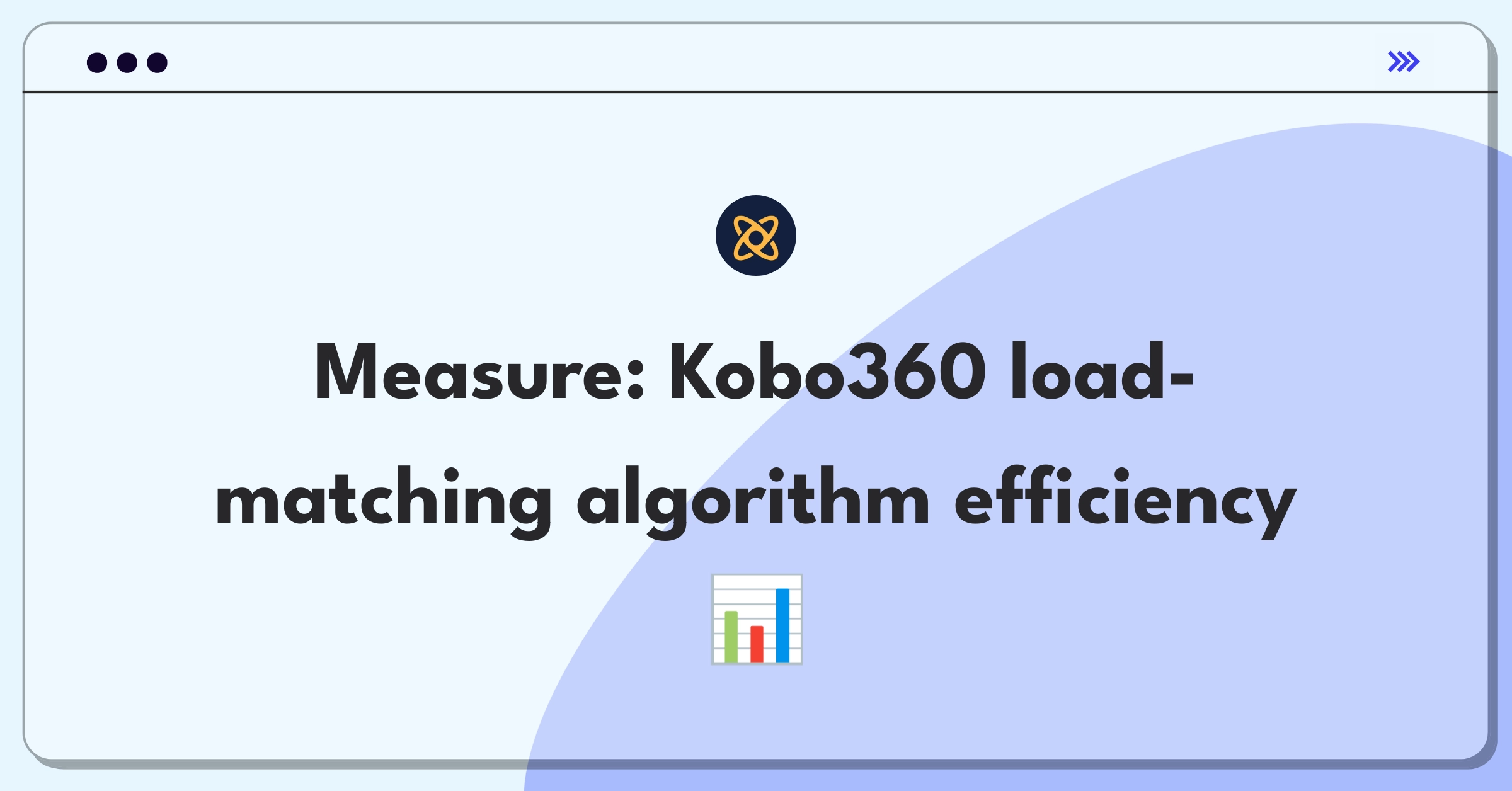Introduction
Measuring the success of Kobo360's load-matching algorithm is crucial for optimizing the platform's efficiency and value for all stakeholders. To approach this product success metrics problem effectively, I'll follow a structured framework that covers core metrics, supporting indicators, and risk factors while considering all key stakeholders.
Framework Overview
I'll follow a simple success metrics framework covering product context, success metrics hierarchy.
Step 1
Product Context
Kobo360 is a digital logistics platform that connects cargo owners with truck owners, streamlining the freight delivery process across Africa. The load-matching algorithm is a core feature that pairs available trucks with suitable cargo loads, optimizing routes and reducing empty miles.
Key stakeholders include:
- Cargo owners (shippers)
- Truck owners and drivers
- Kobo360 (the platform)
- End consumers
User flow:
- Shippers post cargo details (origin, destination, weight, etc.)
- Truck owners/drivers update their availability and location
- Algorithm matches loads to trucks based on various factors
- Matched parties confirm the arrangement
- Delivery is executed and tracked
The algorithm fits into Kobo360's broader strategy of digitizing and optimizing Africa's logistics sector, reducing costs and improving efficiency. Compared to competitors like Lori Systems, Kobo360's algorithm aims to provide more accurate matches and better route optimization.
Product Lifecycle Stage: Growth - The algorithm is established but continually evolving to handle increasing scale and complexity.
Subscribe to access the full answer
Monthly Plan
The perfect plan for PMs who are in the final leg of their interview preparation
$99 /month
- Access to 8,000+ PM Questions
- 10 AI resume reviews credits
- Access to company guides
- Basic email support
- Access to community Q&A
Yearly Plan
The ultimate plan for aspiring PMs, SPMs and those preparing for big-tech
$99 $33 /month
- Everything in monthly plan
- Priority queue for AI resume review
- Monthly/Weekly newsletters
- Access to premium features
- Priority response to requested question


.png)